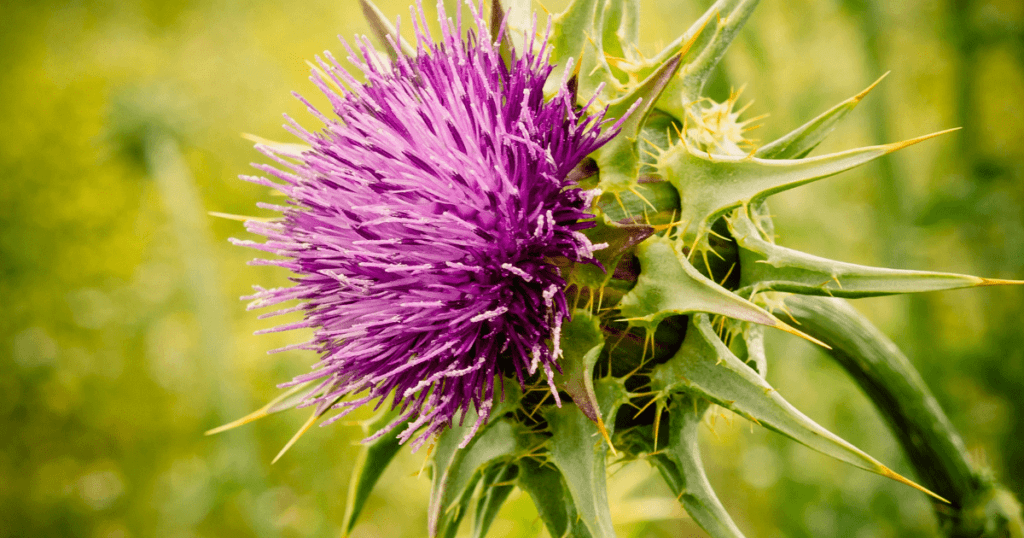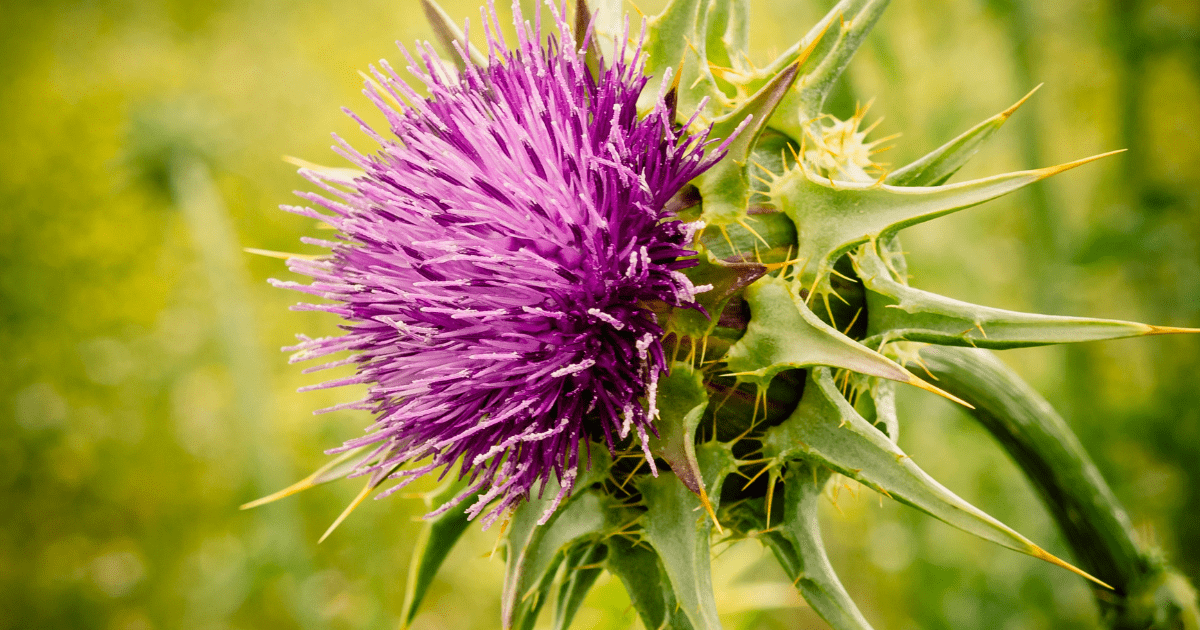Milk Thistle: Nature’s Hidden Treasure for Wellness
Unearth the natural marvel of Milk Thistle for your well-being. Dive into its secrets today
Milk thistle, scientifically called Silybum marianum, derives its name from its distinct large prickly leaves with white veins. Early settlers brought this plant from Europe to North America. It thrives in various regions, including the eastern United States, California, South America, Africa, Australia, and Asia. The terms “milk thistle” and “silymarin” are often used interchangeably. Historically, the herb has been used in addressing liver and gallbladder issues. Marketers promote this herb as a dietary supplement for conditions like hepatitis, cirrhosis, jaundice, diabetes, and indigest
They extract silymarin, an active compound found in milk thistle seeds, and believe it possesses antioxidant properties. This plant contains compounds that may promote skin, liver, and bone health, as well as assist in weight loss. Furthermore, there are claims that the herb could combat insulin resistance and slow cancer growth, among other potential benefits.

Milk thistle, also known as Mary thistle or holy thistle, belongs to the same botanical family as daisies. Its primary medicinal use is in treating liver problems. Some also assert that it may also lower cholesterol and aid in managing type 2 diabetes.
Beth Czerwony, a registered dietitian, acknowledges that milk thistle presents intriguing possibilities for addressing various health concerns. However, she emphasizes the need for further research to establish its safety and effectiveness. The plant is available in various forms, including oral capsules, tablets, and liquid extracts.
Marketers promote milk thistle, a spiky purple flowering plant related to daisies and ragweed, as an herbal supplement. Marketers promote the herb in capsule or tea form. Manufacturers claim a wide range of health benefits, including promoting liver health, enhancing skin condition, supporting digestion, boosting the immune system, and more. However, since the U.S. Food and Drug Administration does not regulate herbal remedies, these claims lack rigorous scientific validation.
Compounds in the Plant
Milk thistle seeds contain silymarin, a mixture of chemical compounds that may offer health benefits. Notable components include silybin, isosilybin, silychristin, isosilychristin, silydianin, and taxifolin, with most research focused on the benefits of silymarin and silybin.
While the plant has a long history of use in herbal medicine, scientific research is limited and often conducted with questionable methods or small sample sizes. Many studies have been carried out in animals or test tubes, with minimal exploration in humans. Nevertheless, existing knowledge indicates that the plant possesses antioxidant and anti-inflammatory properties, which align with its potential health benefits. Importantly, researchers have not suggested toxicity or harmful effects in any studies, but comprehensive research is still necessary to understand its full implications, including potential interactions with medications.
Potential Health Benefits
Here’s what we currently know about some of the plant’s potential benefits:
- Liver Health: Milk thistle is most renowned for supporting liver health, particularly in conditions like cirrhosis, hepatitis B, and fatty liver disease. Researchers believe it enhances liver function by countering free radicals, preventing scarring, and deterring toxins from binding to the liver.
- Diabetes Management: Some studies propose that the plant may lower blood sugar levels in individuals with Type 2 diabetes, potentially without the adverse effects of certain diabetes medications. Individuals with diabetes or prediabetes should exercise caution and monitor their blood sugar levels while using milk thistle.
- Neurological Disease: Emerging evidence suggests that the herb could protect against age-related cognitive decline, potentially offering some defense against conditions like Alzheimer’s and Parkinson’s diseases. However, further research is needed to determine its comparative effectiveness with other antioxidant-rich foods.
- Bone Health: Animal studies indicate that the plant might fortify bones and prevent bone loss and osteoporosis. Translating these findings to humans remains challenging due to other concurrent lifestyle changes typically made by those seeking to improve bone health.
- Chemotherapy Aid: Some research suggests that the plant could enhance the outcomes of chemotherapy and reduce its side effects due to its antioxidant properties. However, researchers need more comprehensive studies to confirm the herb’s benefits for specific cancer types and chemotherapy medications.
- Acne Control: The antioxidant and anti-inflammatory properties of the plant have shown promise in treating acne. A small study reported a 53% reduction in acne lesions among participants who took 210 milligrams of the herb daily for eight weeks.
Recommended Doses
People generally tolerate the herb well, with doses of up to 700 mg three times a day for 24 weeks appearing safe.Side effects are usually mild and can include headaches, nausea, and gastrointestinal discomfort. Individuals allergic to plants like ragweed, daisies, marigolds, and chrysanthemums should be cautious, as they may experience an allergic reaction.
Safety concerns include the potential to lower blood sugar levels, which could be risky for individuals with diabetes. There is also some uncertainty about its impact on estrogen levels, making it advisable for individuals with certain cancers or conditions to avoid milk thistle. Pregnant or breastfeeding individuals and those with chronic conditions should consult a healthcare provider before starting any supplement or herbal remedy.
Beth Czerwony underscores that while milk thistle presents potential benefits, obtaining similar advantages through a balanced diet rich in antioxidant-rich foods is feasible, as there are numerous alternatives to the herb’s supplements.
Sources:
Cleveland Clinic. (2023). Is Milk Thistle Your Next Go-To Supplement? (https://health.clevelandclinic.org/milk-thistle-benefits/). Accessed September 11, 2023, 2023
Mayo Clinic. Milk Thistle. (https://www.mayoclinic.org/drugs-supplements-milk-thistle/art-20362885) Accessed September 11, 2023
National Centre for Complementary and Integrative Health. Milk Thistle. (https://www.nccih.nih.gov/health/milk-thistle).
Aremu, F. (2023). Medical News Today. What are the benefits of milk thistle? (https://www.medicalnewstoday.com/articles/320362#_noHeaderPrefixedContent). Accessed September 12, 2023
Category
- Health Issues (72)
- Healthy Diet (48)
- Herbs for Health (11)
- Mental Health (33)
- Skin Care (20)

